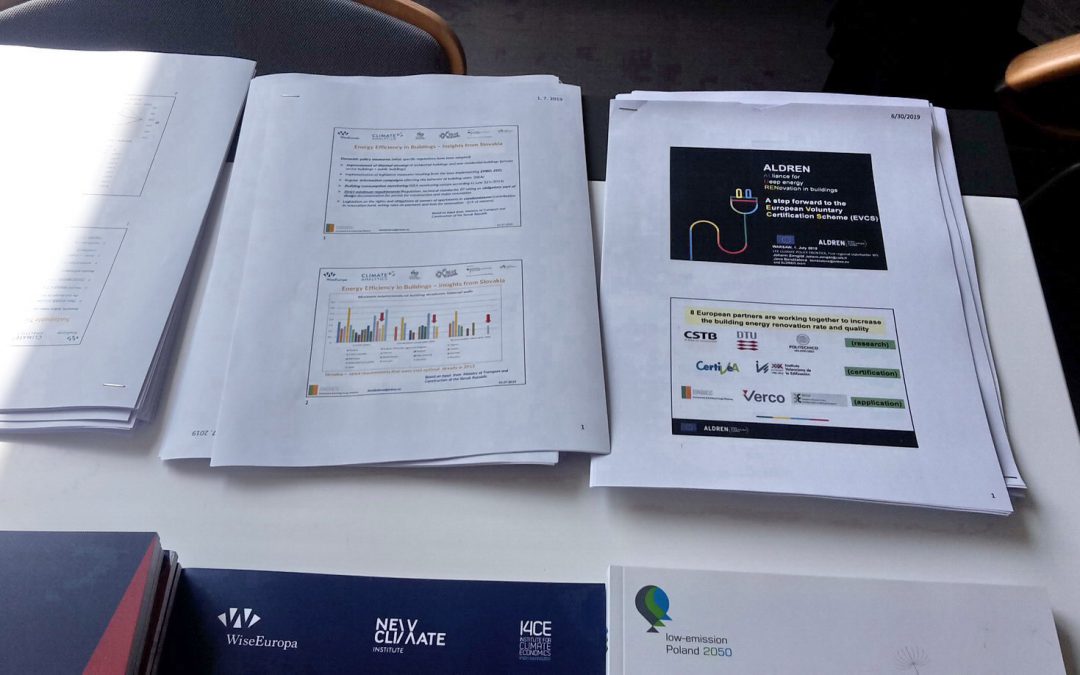On July 1st, representatives of public administration, business, analytical centres and non-governmental organizations from the countries in Visegrad group had a chance to engage in a knowledge exchange on best practices for climate action in the transport and buildings sector during the first interactive regional stakeholder workshop held in Warsaw.
The event was organized within the framework of the CEE Climate Policy Frontier project, supported by the European Climate Initiative (EUKI) and implemented by WiseEuropa, Climate Strategies, Expert Forum and Climate Analytics.
The workshop was opened by Aleksander Śniegocki, Project Manager of Energy and Climate at WiseEuropa, who presented the overview of the current state and good practices in climate action in transport and building sectors in CEE region. After that, participants were divided into parallel working groups, in which they discussed the applicability of the good policy practices across the CEE region, and establishment of next steps within four areas: electromobility, energy efficiency in buildings, clean heating sources in buildings and sustainable transport modes.
The buildings working group devoted its first interactive session to the issue of supporting energy efficiency in buildings. Jana Bendžalová, Executive manager in the Environment and Building Energy Efficiency (ENBEE, Slovakia) has shared Slovakian experiences in scaling up retrofit programs and ensuring high-efficiency standards in new and retrofitted buildings (download presentation).

One of the conclusion in the wrap up of the session about buildings was that there is a problem with quality of national EPCs to be used for subsidies. H2020 ALDREN project was presented by Jana Bendžalová as an alternative (download presentation). Countries of “Visegrad group” were also encouraged to be more involved in the EU developments in the energy performance of building activities and try to follow EU common approaches.
“Ex post evaluation of energy efficiency impacts of retrofits remains a challenge across the CEE region. Such assessments are often based on theoretical calculations or inadequate certification systems. Addressing this common challenge of improving the efficiency of energy certificates use is another area of cooperation for the CEE countries.”
“Regarding buildings sector, problems such as ambiguity in financing schemes or ineffective certification could be eliminated by, among others, the introduction of harmonised standards, conducting ex-post evaluations of retrofit programmes and supporting intersectoral cooperation”.
Resource: Wise Europa (click here)


Recent Comments